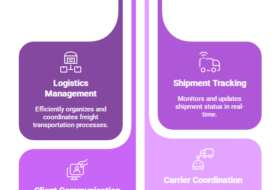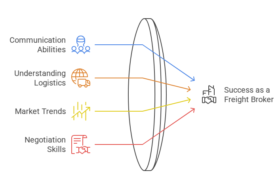Are you fascinated by the maritime industry and the intricacies of global trade? If you’re considering a career as a shipping agent, you’re embarking on a journey that involves coordinating the movement of goods, navigating international regulations, and ensuring smooth sailing for vessels and their cargo. To succeed in this dynamic field, enrolling in a comprehensive shipping agent training program is essential. In this article, we’ll navigate through the vast ocean of knowledge, exploring the significance of shipping agent training programs and how they can chart a course for your success in the maritime world.
- Understanding the Role of a Shipping Agent
Shipping agents act as intermediaries between ship owners, charterers, and port authorities. They handle a myriad of tasks, including cargo booking, documentation, customs clearance, and vessel coordination, ensuring the seamless movement of goods across oceans. - Why Invest in Shipping Agent Training?
Training programs provide in-depth knowledge of maritime operations, international trade laws, and port management. They equip aspiring shipping agents with the skills necessary to excel in a competitive and regulated industry. - Choosing the Right Training Program
When selecting a training program, consider factors such as the program’s reputation, faculty expertise, industry connections, and the comprehensiveness of the curriculum. Researching alumni success stories can provide valuable insights into the program’s effectiveness. - Curriculum Highlights: What to Expect
A comprehensive training program covers areas such as maritime law, vessel operations, cargo handling, safety protocols, and crisis management. Participants gain insights into the day-to-day challenges faced by shipping agents and learn effective problem-solving techniques. - Interactive Learning: Nautical Excellence
Interactive learning methods, including case studies, simulations, and virtual shipboard experiences, enhance understanding. These methods allow aspiring shipping agents to immerse themselves in realistic scenarios, honing their decision-making skills. - Navigating International Regulations
Shipping agents must navigate complex international regulations governing maritime trade. Training programs provide detailed insights into trade agreements, customs procedures, and documentation requirements, ensuring compliance and smooth operations. - Hands-on Experience: Dockside Learning
Hands-on experiences, such as port visits and vessel tours, provide participants with practical insights into port operations, vessel logistics, and cargo handling. Witnessing these processes firsthand enhances comprehension and fosters a deeper appreciation for the industry. - Shipping Agent Certification: A Professional Edge
Obtaining a shipping agent certification demonstrates your commitment to professionalism and industry standards. Certification serves as a testament to your expertise, instilling confidence in clients, ship owners, and charterers. - Success Stories: Charting Career Voyages
Explore inspiring success stories of shipping agents who embarked on their careers after completing rigorous training programs. These stories showcase the diverse paths within the industry, inspiring aspiring shipping agents to set sail on their own unique journeys. - FAQs: Answering Your Maritime Queries
Q1: Are shipping agent training programs available online?
A1: Yes, many reputable institutions offer online shipping agent training programs with interactive modules, allowing participants to study at their own pace and convenience.
Q2: What qualifications are required to enroll in a shipping agent training program?
A2: Requirements vary, but a high school diploma or equivalent qualification is typically the minimum. Some programs may require a background in maritime studies or related fields.
Q3: How long does it take to complete a shipping agent training program?
A3: The duration varies, ranging from a few weeks for intensive programs to several months for comprehensive courses. Part-time and online options offer flexibility to accommodate diverse schedules.
Q4: What career opportunities are available after completing a shipping agent training program?
A4: Certified shipping agents can pursue careers in shipping companies, port authorities, logistics firms, or establish their own shipping agency businesses. Opportunities also exist in government agencies and international trade organizations.
Q5: How does networking play a role in the shipping agent profession?
A5: Networking is crucial in the maritime industry. Training programs often facilitate networking opportunities, allowing participants to connect with industry professionals, potential employers, and fellow aspiring shipping agents.
In conclusion, enrolling in a shipping agent training program is the anchor that grounds your aspirations in the maritime industry. By choosing a reputable program, embracing interactive learning, and gaining hands-on experience, you can set sail on a rewarding career as a proficient shipping agent. Certification not only opens doors to diverse opportunities but also signifies your commitment to excellence in this vital industry. So, hoist the sails of your ambition and embark on a transformative journey in the world of shipping!
Growth + Change = Opportunity! How are you going to capitalize on the opportunity as a freight broker, agent, dispatcher or box truck carrier?
Enroll in a course today and get a Shippers List for free! Use Code: freeship








